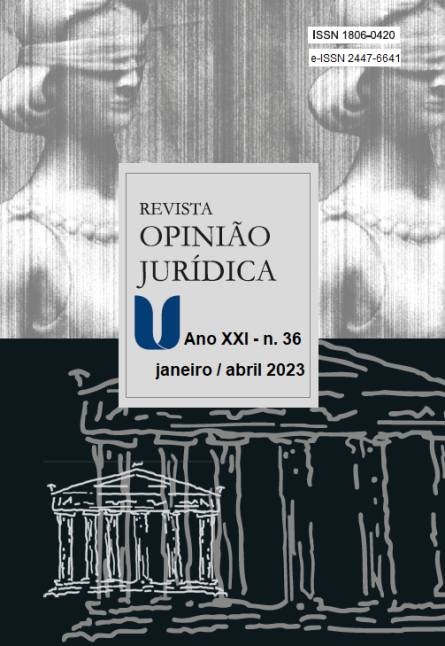DOMESTIC WORK AS ESSENTIAL IN THE PANDEMIC OF COVID-19 IN MINAS GERAIS AND THE EXPANSION OF THE LEGAL VULNERABILITY OF WORKERS
DOI:
https://doi.org/10.12662/2447-6641oj.v21i36.p85-116.2023Keywords:
vulnerability, domestic service, Covid-19 pandemicAbstract
Contextualization: Historically, domestic work is reduced to a lower position compared to other professions, resulting in the invisibility and vulnerability of the category, which slowly conquered its fundamental and labor rights.
Objective: To analyze the extent to which determining domestic service as essential reinforces the vulnerability of the category in the Covid-19 pandemic in Minas Gerais.
Method: This is an exploratory and qualitative study, in which technical procedures of bibliographic and documentary research and the deductive approach method will be used, as well as field research to validate the theoretical proposition.
Results and contributions: The vulnerability of domestic workers was accentuated with the arrival of the Covid-19 pandemic, an unprecedented health crisis, in which their work was considered an essential service by the decree that instituted the “Onda Roxa” in the state of Minas Gerais. With the imposition of government decrees, many workers were relocated to the home office, others had their activities suspended, that is, many professions had protective sanitary measures, but housework remained untouched during the pandemic, maintaining its invisibility in the labor scenario and social. With this, there was an increase in the vulnerability of the category of domestic workers who, even though they were part of the work group, did not have due social recognition or any specific state tutelage, being, as they almost always were, relegated to their own fate.
Conclusion: It was concluded that the normative measure of establishing domestic service as essential served, in practice, to reinforce the vulnerability of the domestic worker in Minas Gerais.
Published
How to Cite
Issue
Section
License
CESSION OF COPYRIGHTS
The submission of articles to analysis for publication on Opinião Jurídica implies the author(s) transfers copyrights to Centro Universitário Christus – UNICHRISTUS for reproduction, publicizing, distribution, printing and publication, according to the Publication Norm 414R, Opin. Jur., Fortaleza, year 12, n. 16, p.1-414, Jan./Dec. 2014, costs to be bore by UNICHRISTUS, in whatever format or means that may or shall exist, in accordance to articles 49 and following of Federal Law 9.610/98.
1. In ceding copyrights, the author(s) agrees to do so in exclusivity, free of charge and for the totality of the work.
2. UNICHRISTUS may make the work, in its entirety or in parts, available for scholarly purposes, without altering its contents, except for small corrections that are deemed necessary.
3. The cession of copyrights is valid in all countries and for versions of the material in its original language or translated into a foreign language.
RESPONSIBILITY FOR THE CONTENT
By submitting an article, the author(s) declare to have sole responsibility for the content of the piece and is(are), therefore, responsible for any judicial or extrajudicial measures referring to it.
1. In case of joint authorship, all authors are considered collectively responsible, except when proved otherwise.



















